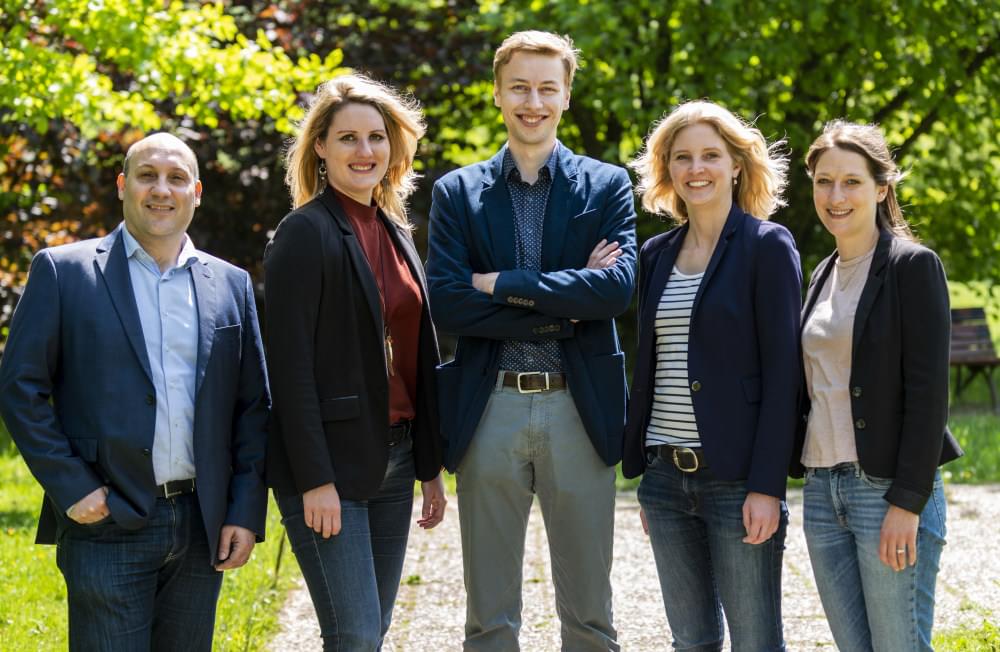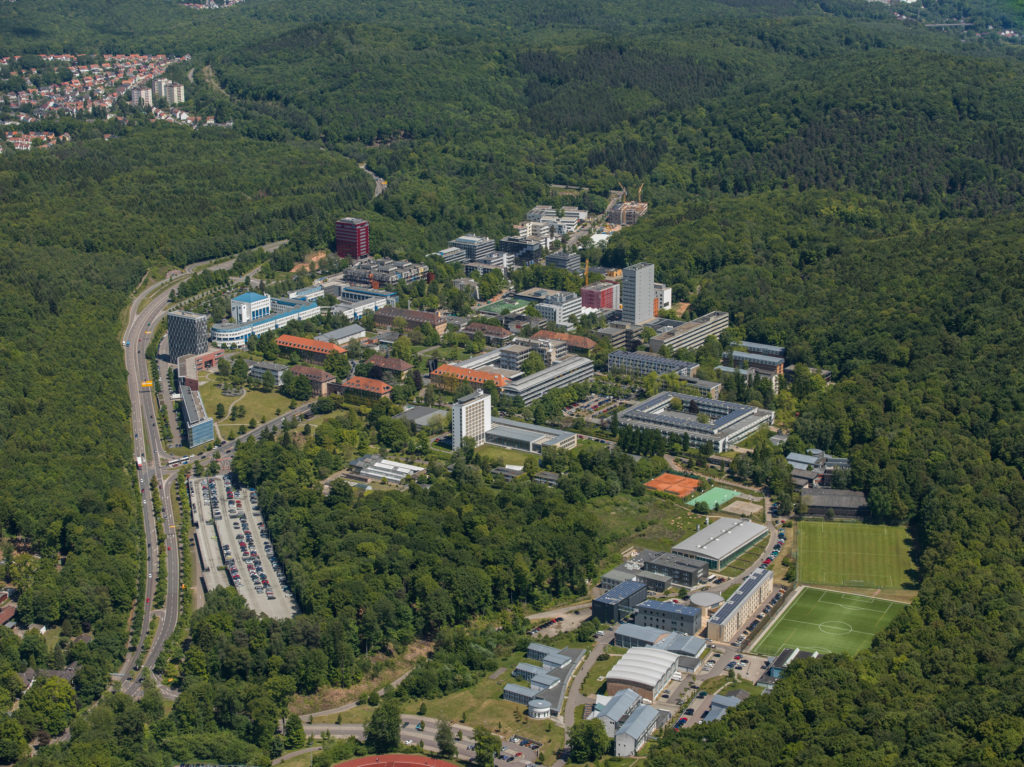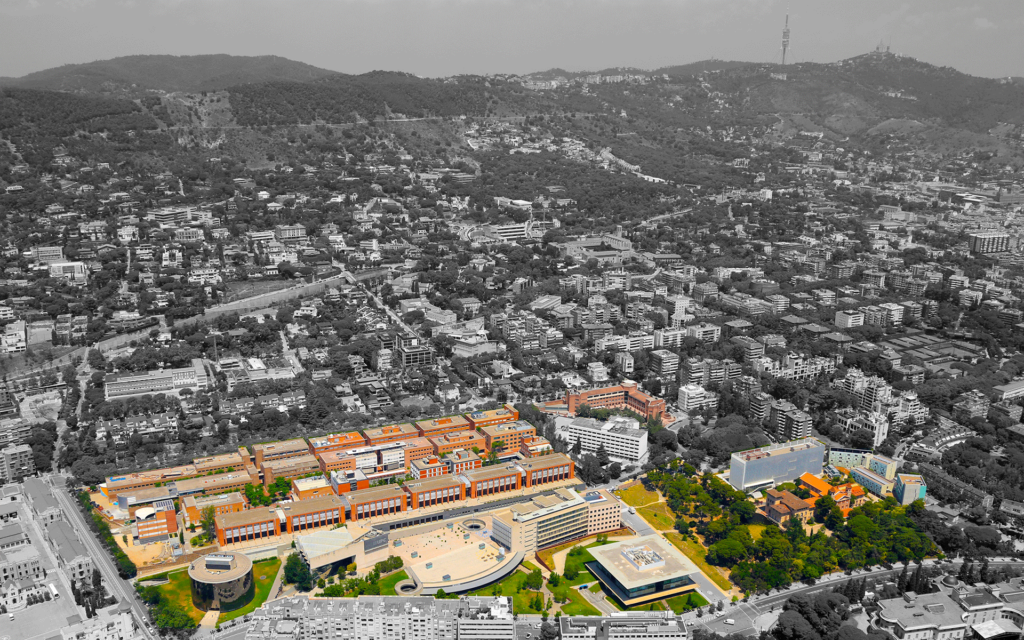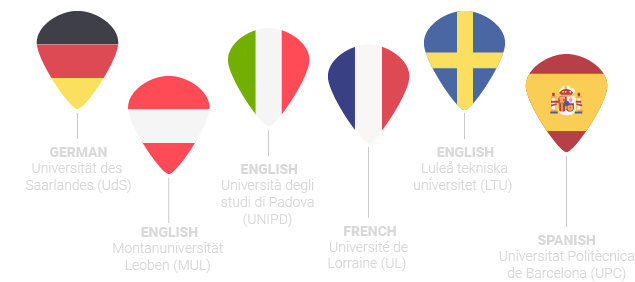Team & Consortium
The AMASE Master Consortium

AMASE is one of the international study programmes coordinated by EUSMAT, the European School of Materials. The EUSMAT Office and team is located on the campus of Saarland University at the Chair of Functional Materials.
The AMASE Consortium consists of six partner universities:
UdS – Universität des Saarlandes, Germany
- Saarland University (German: Universität des Saarlandes) is a modern research university located in Saarbrücken, the capital of the German state of Saarland. It was founded in 1948 in Homburg in co-operation with France and is organized in six faculties that cover all major fields of science.
With its numerous degree programmes and the variety of final qualifications offered (bachelor, master, Ph.D., state examinations), Saarland University provides the broad spectrum of disciplines typical of a classical universitas litterarum.
LTU – Luleå tekniska universitet, Sweden
- Luleå University of Technology is experiencing strong growth with world-leading competence in several areas of research. Research at Luleå University of Technology is for the most part applied research and is conducted in close collaboration with international and national companies.
The research has a turnover of over EUR 90 million and covers 70 research subjects.
UPC – Universitat Politècnica de Catalunya, Spain
- UPC is a public university that carries out research and provides higher education in the fields of architecture, engineering, sciences and technology.
In collaboration with industry, the UPC is a driver of economic and social change, valorising research and transferring technology and knowledge to society.
As a leading member of networks of excellence, the UPC has privileged relations with scientific and educational institutions all over the world.
UL – Université de Lorraine, France
- Université de Lorraine promotes innovation through the dialogue of knowledge, taking advantage of the variety and strength of its scientific fields, and aiming at the promotion of knowledge transfer to irrigate innovation and economic growth as well as the progress of fundamental science.
Université de Lorraine is a major actor of economic and social development in “La Grande Région”, building on intercultural and intergeneration links, coordinating a regional research policy, and giving access to higher education to as many inhabitants as possible.
MUL – Montanuniversität Leoben, Austria
- Montanuniversitaet Leoben (MUL) is an open-minded, international and value-based institution that features a unique profile. It is located in Austria, in an attractive high-tech region with global networks to industry and research, and it is dedicated to the unity of excellent teaching and research. The study programmes offered – with their specific focus areas – can only be pursued in Leoben. As a result, Montanuniversitaet graduates are amongst the most sought-after academics of all. As the smallest universities in Austria, Montanuniversitaet offers students an outstandingly good infrastructure and the best possible attention from academic staff. Due to its comfortable size, students benefit from the close cooperation with their lecturers, and any problems can be solved swiftly and efficiently.
UNIPD – Università degli Studi di Padova, Italy
- The University of Padua is a world-leading research-intensive university that has been driving global change since its foundation in 1222. The University of Padua is today a multidisciplinary institution with 8 Schools and 32 Departments offering a broad and comprehensive portfolio of programmes, ranging from Engineering to Business and Political Sciences, from Medicine to Humanities, from Psychology to Agriculture, from Law to Science. It is ranked among the top 250 institutions in the world (QS ranking 2020).
The UdS, UPC, LTU and UL agreed to establish and operate a European Master programme in Advanced Material Science in 2006. MUL and UNIPD joined the consortium in 2020.
Through this agreement participating students can obtain a Master’s Degree, which leads to a double degree and is issued officially by two institutions of the consortium involved in the joint studies. Therefore it counts as a double degree. These degrees are recognized in the countries where the degree-awarding universities are located.
Read the complete Consortium Agreement.

UdS 
UPC Diagonal-Besòs 
UL 
UdS 
UPC Campus Nord 
UL 
LTU 
Students at MUL in Leoben 
UNIPD – Study Room 
LTU 
Montan Universität Leoben – Main building. 
UNIPD
Team
Programme Coordination: UdS – Universität des Saarlandes, Germany







Contact Persons at Partner Universities












